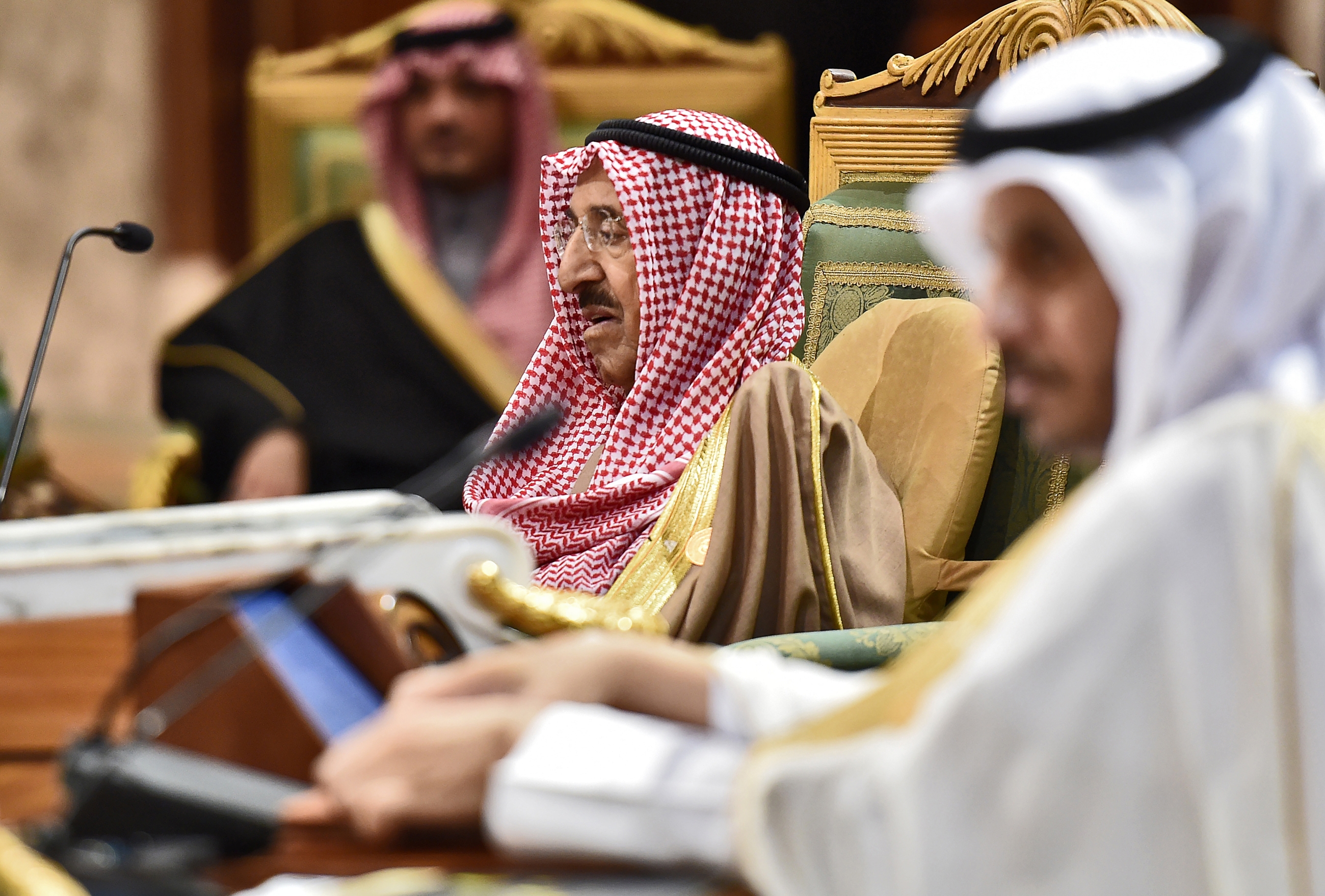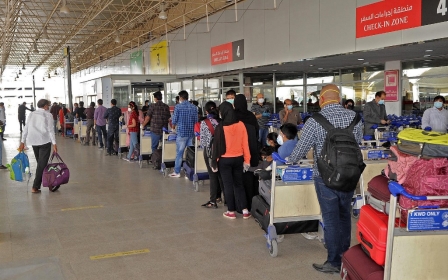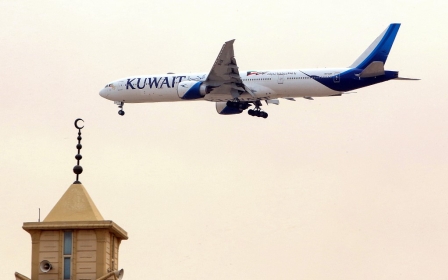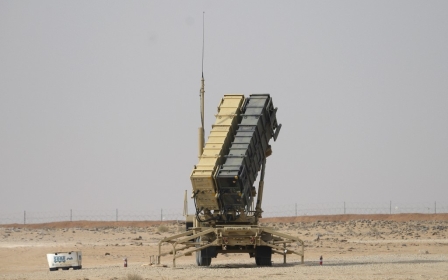Kuwait's ailing emir hospitalised, crown prince takes over some duties

Kuwait's crown prince stepped in as partial ruler on Saturday after the hospitalisation of the 91-year-old emir, Sheikh Sabah al-Ahmad al-Sabah, the oil-rich nation's state-run news agency reported.
"The crown prince (Sheikh Nawaf al-Ahmad al-Sabah) is to temporarily execute certain prerogatives of the emir," his half-brother, the head of state's office announced, quoted KUNA news agency.
The agency reported earlier that Sheikh Sabah, ruler of the Gulf state since 2006, was hospitalised "to undergo medical tests".
In September 2019, Sheikh Sabah underwent medical tests shortly after arriving in the United States, leading to a meeting with President Donald Trump being called off.
The emir had his appendix removed in 2002, two years after having a pacemaker implanted. In 2007, he underwent urinary tract surgery in the United States.
New MEE newsletter: Jerusalem Dispatch
Sign up to get the latest insights and analysis on Israel-Palestine, alongside Turkey Unpacked and other MEE newsletters
Widely regarded as the architect of modern Kuwait’s foreign policy, Sheikh Sabah has pushed for diplomacy to solve regional issues, including the ongoing boycott of Qatar by four Arab nations, and hosted major donor conferences for war-torn nations like Iraq and Syria.
Last year he called for de-escalation in the Gulf amid a surge of tit-for-tat attacks by the US and its arch-foe Iran in and around the Strait of Hormuz, the strategic waterway through which almost a fifth of the world's oil - and most of Kuwait's - passes.
Sheikh Nawaf, 83, is an elder statesman who has held high office for decades, including the defence and interior portfolios.
Kuwait's central bank governor issued a statement on Saturday after news of the emir's hospitalisation, stressing the strength and stability of the dinar currency. S&P Global Ratings had on Friday downgraded Kuwait's outlook to "negative" from "stable", saying it expects the country's main liquidity buffer, the General Reserve Fund, to be insufficient to cover the state budget deficit.
The government has been trying to bolster its finances, which have been hit by low oil prices and the coronavirus pandemic, and has been rapidly running down the General Reserve Fund.
Middle East Eye delivers independent and unrivalled coverage and analysis of the Middle East, North Africa and beyond. To learn more about republishing this content and the associated fees, please fill out this form. More about MEE can be found here.




